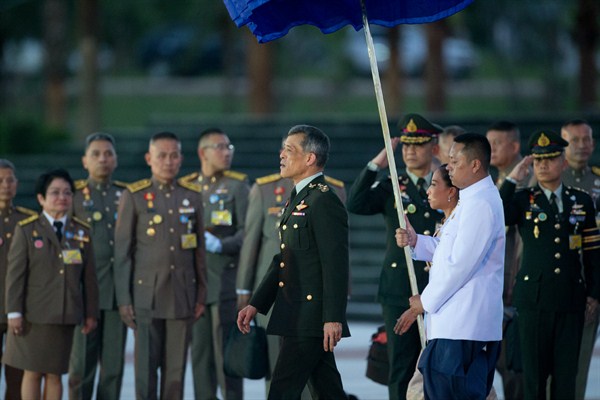Nearly a year and a half since a bloodless coup brought a military junta to power in Thailand for the 12th time in its history, the Southeast Asian country remains mired in uncertainty, with its political outlook hanging in the balance and its economy deeply troubled.
Politically, the transition back to an elected government that the generals had promised is nowhere in sight. In May 2014, just a week after the coup, Prime Minister Prayut Chan-o-cha declared in his first public address that the ruling junta would move toward elections in a year and three months. But that deadline has been repeatedly delayed, first into 2016 and now into 2017. In the meantime, the junta has also been cracking down on dissent and free expression.
The rejection of a new draft constitution in September, a move critics read as a way for the junta to preserve its rule, was just the latest setback for polls, to say nothing of the document itself, which contained some worryingly anti-democratic provisions. With the constitutional drafting process having restarted last month, with the junta creating another constitutional committee, Thailand now has five months to devise a new charter, after which it will need to hold a referendum, write supporting laws and conduct the election campaign. As a result, an election is now expected to be held only sometime in mid-2017 according to official government estimates.

